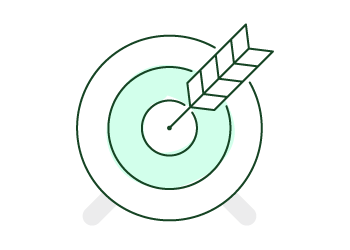Personal Productivity
Crises Are Opportunities
AUTHOR: Francisco Sáez“Through each crisis in my life, with acceptance and hope, in a single defining moment, I finally gained the courage to do things differently.” ~ Sharon E. Rainey

Personal productivity is mainly a matter of habits. That’s why when the wrong habits are installed in your brain for too much time, nothing works. No matter the method, tricks and support tools that you use. The first few weeks everything seems great, but old habits suddenly impose again and chaos reigns again.
If that happens to you, the good news is that at least you are on the right track. You may need to overstep the mark a little more and cause a bigger crisis.
Charles Duhigg tells in his book The Power of Habit the story of Rhode Island Hospital, a pioneer medical institution in the US that reached a situation of extreme crisis after many years in which the internal procedures had been steadily feeding internal tensions between doctors and nurses. A series of corrosive habits had been growing among nurses in order to mitigate the arrogance of doctors, the excessive working hours and the low appreciation they were given.
As a result of this war of power and the work culture that was created from it, terrible mistakes started to be made: surgeons too often mistakenly operated on the wrong side of a patient’s head. A series of mistakes within a short period of time caused the death of several patients and led to lawsuits and to millions in fines. In addition, newspapers, television and other media zeroed in on the hospital. It was a situation of total chaos.
Fortunately, the newly appointed hospital administrator decided to see the situation as an opportunity to re-evaluate everything. There were changes in the structure of the organization, an intense training program for team work where the importance of the work of nurses and medical staff was accentuated, video cameras were installed in operating rooms to ensure that procedures were met and a new computer system allowed any employee to anonymously report any incident considered to be dangerous.
All those measures had been proposed years earlier, but neither the doctors nor the nurses were willing to have their status quo changed. It was necessary to reach an extreme situation for everyone to be open to change.
It is in situations of chaos when our organizational habits are more likely to be altered. In fact, crises have such value to produce changes that good leaders maintain that feeling of catastrophe for a while on purpose. They can thus implement the changes with greater probability of success.
Personal changes need a major motivation to serve as a catalyst to boost transition. The good thing about crises is that they eliminate the requirement of self-motivation and put us squarely outside our comfort zone. There is no going back.
What you call crisis is just a need for change that you must accept, instead of fighting it. Keep a cool head, forget the rules and think differently.
If you can’t get yourself well organized, if your stress and anxiety levels are reaching unsustainable limits, it’s time to reconsider how you are doing things and cause a profound change. Do you know Getting Things Done? GTD is a personal productivity method based on three simple habits:
- Not keeping anything in your head
- Making decisions every day
- Reviewing your system regularly.
Simple to understand, although probably not as simple to implement. It’s worth a try.




No comments